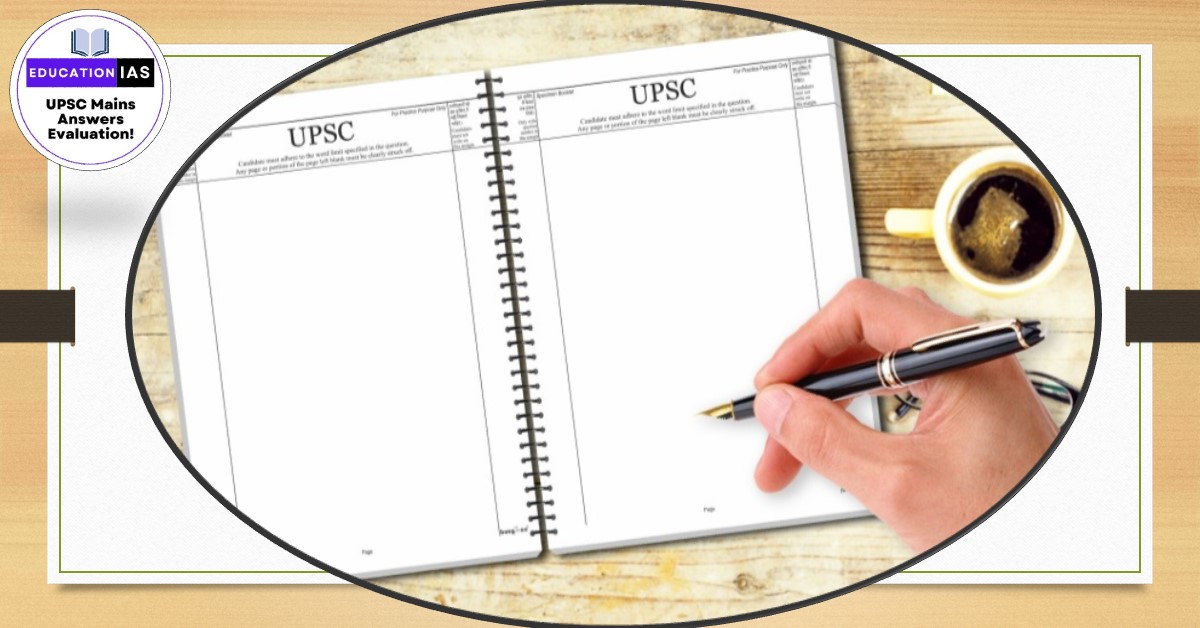Que. What do you mean by Minimum Support Price (MSP)? How will MSP rescue the farmers from the low income trap?
न्यूनतम समर्थन मूल्य (एम.एस.पी.) से आप क्या समझते हैं? न्यूनतम समर्थन मूल्य कृषकों का निम्न आय फंदे से किस प्रकार बचाव करेगा?
Structure of the Answer
(i) Introduction: Define “Minimum Support Price” (“MSP”), its purpose to guarantee fair prices, and its potential role in rescuing farmers from the “low income trap.”
(ii) Main Body: Explain how “MSP” ensures price stability, supports farmers’ income, protects them from exploitation, and reduces rural poverty through various mechanisms.
(iii) Conclusion: Conclude by emphasizing how MSP can uplift farmers, promote agricultural sustainability, and reduce poverty, but requires better implementation and expanded coverage.
Introduction
“Minimum Support Price” (“MSP”) is a government-mandated price floor aimed at safeguarding farmers against price volatility. It ensures farmers receive a guaranteed price for their crops, providing income stability and helping them escape the “low income trap” caused by market fluctuations.
Understanding Minimum Support Price (MSP) and Its Importance
“MSP” is a price mechanism set by the government to provide farmers with a minimum guaranteed price for their crops. This helps protect them from market price volatility.
(i) Definition of MSP: “Minimum Support Price” (“MSP”) is the lowest price that the government guarantees for certain agricultural commodities. It ensures that farmers can sell their produce at a price that covers the cost of production and provides a reasonable return.
(ii) Objective of MSP: The main objective of MSP is to protect farmers from “market fluctuations” and ensure that they do not suffer from selling their crops at prices lower than the cost of production.
(iii) Mechanism of MSP Implementation: The government sets MSP based on the cost of production, market conditions, and the overall economic environment. It is mainly applicable to staple crops like rice, wheat, and pulses.
(iv) Government’s Role in MSP: The government, through agencies like the “Food Corporation of India” (FCI), ensures that farmers are paid MSP for their produce by purchasing crops at this price from them.
(v) Crop Coverage under MSP: MSP is typically available for key food crops like “rice,” “wheat,” and “pulses.” These are essential to India’s food security, and MSP guarantees farmers fair returns on these crops.
Role of MSP in Protecting Farmers’ Income and Preventing Exploitation
MSP ensures income stability for farmers and safeguards them from exploitation by middlemen and fluctuating market prices.
(i) Guaranteeing Fair Prices: By guaranteeing a minimum price, MSP ensures that farmers receive a fair return for their produce, preventing them from being exploited by market intermediaries who offer low prices.
(ii) Prevention of Income Loss: Farmers are often forced to sell at low prices during bumper crops or market downturns. MSP acts as a “safety net,” preventing them from incurring losses during such times.
(iii) Avoiding the Debt Trap: In the absence of MSP, farmers often borrow money at high-interest rates to cover production costs. By ensuring a guaranteed income, MSP helps break this cycle of debt and financial insecurity.
(iv) Economic Security for Farmers: With MSP in place, farmers are able to plan their finances better, invest in improved farming practices, and avoid the pitfalls of “unsustainable debt” and financial instability.
(v) Empowerment Against Exploitation: MSP empowers farmers to demand fair prices for their crops and negotiate better deals with buyers, thus reducing the power of exploitative middlemen in rural markets.
Impact of MSP on Reducing Poverty and Enhancing Rural Development
MSP plays a crucial role in reducing rural poverty by providing farmers with a stable income that allows them to meet basic needs.
(i) Reducing Rural Poverty: MSP helps reduce poverty in rural areas by ensuring that farmers receive a steady income. This income stability prevents them from falling below the poverty line and improves their standard of living.
(ii) Improvement in Living Standards: With a stable income from MSP, farmers are better able to afford necessities like healthcare, education, and improved housing, which leads to an overall improvement in their quality of life.
(iii) Encouraging Agricultural Investment: MSP ensures that farmers earn a reliable income, which in turn encourages them to invest in quality seeds, fertilizers, and modern equipment, boosting agricultural productivity.
(iv) Boosting National Food Security: MSP helps in enhancing food security by ensuring that essential crops like “wheat,” “rice,” and “pulses” are produced consistently and made available at stable prices.
(v) Support for Marginal and Small Farmers: Small and marginal farmers benefit the most from MSP. As they have limited market power, MSP provides them with a guaranteed price and helps prevent their exploitation.
Challenges and Limitations of MSP
While MSP plays a vital role in protecting farmers, there are challenges that hinder its effective implementation.
(i) Limited Coverage of Crops: Currently, not all crops are covered under MSP, which leaves some farmers vulnerable to market volatility. Expanding the MSP scheme to include more crops would offer broader protection.
(ii) Geographical Disparities: MSP benefits are not uniformly distributed across the country. Farmers in remote or less-developed regions may not have access to MSP procurement mechanisms, limiting its effectiveness.
(iii) Inefficiencies in Procurement: The implementation of MSP faces challenges such as inefficient procurement systems and corruption, which prevent farmers from accessing MSP even when it is officially in place.
(iv) Fiscal Burden on Government: The cost of maintaining MSP can be a significant financial burden on the government. This requires substantial investment, which may not always be sustainable in the long run.
(v) Market Distortions: MSP, while protective, can also distort market dynamics by discouraging diversification into other high-value crops that might offer better returns for farmers.
Conclusion
The “Minimum Support Price” is a crucial policy to safeguard farmers’ incomes and reduce poverty. While MSP has many benefits, it requires effective implementation, better coverage of crops, and improved infrastructure to ensure its long-term success and sustainability.
